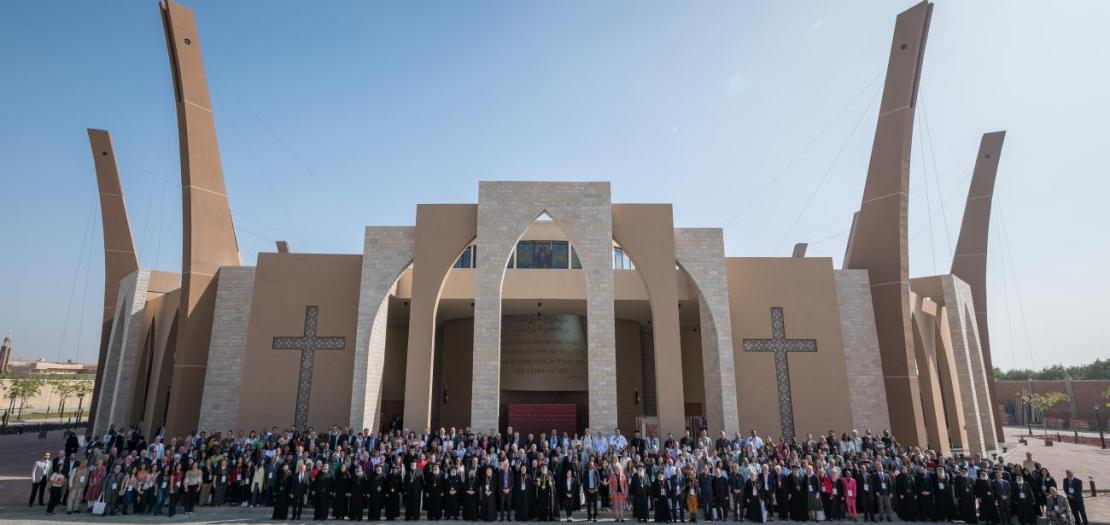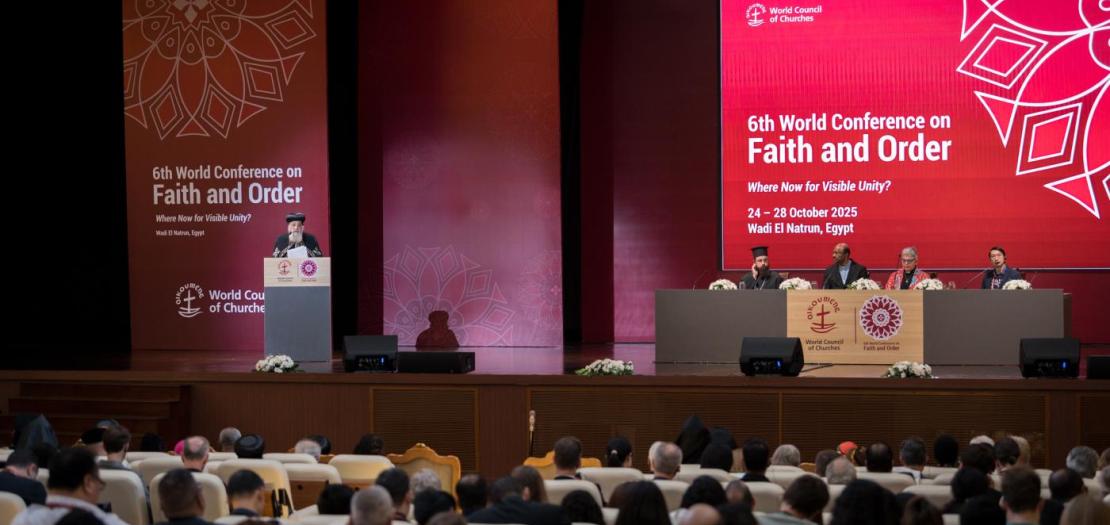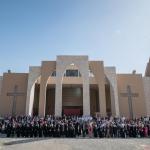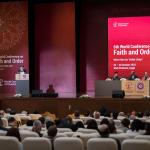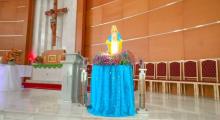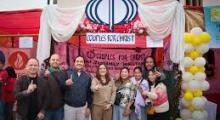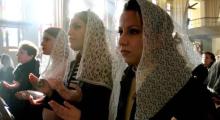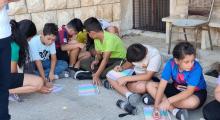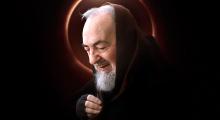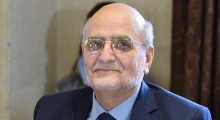Issued by the Catholic Center for Studies and Media - Jordan. Editor-in-chief Fr. Rif'at Bader - موقع أبونا abouna.org
Theological dialogue, Pope Tawadros said in his address at the opening session of the conference, is a journey toward a shared understanding of faith.
“It is not an attempt to eliminate or dissolve differences, but rather to discover the profound faith uniting the church,” said Pope Tawadros, the 118th Pope of Alexandria and Patriarch of the See of St. Mark.
Organized by the WCC’s Commission on Faith and Order, the conference is meeting from 24 to 28 October 2025 at the Logos Papal Center of the Coptic Orthodox Church at Wadi El Natrun, southwest of Alexandria, Egypt, around the theme “Where now for visible unity?”
There have been only five such world conferences since the first in Lausanne in 1927, which gave birth to the Faith and Order movement, one of the Christian initiatives that led to the founding of the WCC in 1948.
Pope Tawadros was welcomed to the opening session of the conference by Rev. Prof. Dr Stephanie Dietrich, moderator of the Faith and Order commission, and Rev. Prof. Dr Jerry Pillay, WCC general secretary.
About 400 participants have gathered for the conference, which is taking place in the year that marks the 1700th anniversary of the First Council of Nicaea, a defining moment for the Christian church.
The See of Alexandria played an important role in the debates that led to the Council of Nicaea. St Athanasius, bishop of Alexandria, sought to resolve the Arian controversy and facilitated the reception of the Nicene faith.
The Council of Nicaea was the first ecumenical assembly of the global church, Dietrich said in her opening address to the conference, summoned to guard the faith and to bring and hold the church together in unity.
“The very memory of Nicaea stands behind our meeting and gives weight to our work,” she said.
Pillay, in his address to the opening session, described the World Conference as an important milestone on the WCC’s Pilgrimage of Justice, Reconciliation, and Unity.
“Inspired by the Council of Nicaea, which convened 1,700 years ago to seek unity in faith and in the common confession of Christ and to heal the wounds of persecution and repression, we meet today in a shared quest for unity and solidarity,” Pillay said.
The Council of Nicaea, Pope Tawadros said, marked a turning point in defining the contours of the Orthodox faith and formulating the universal doctrine passed down by the church over the centuries.
“Recalling the Council of Nicaea is not merely a celebration of the past; it is a renewed call to remain steadfast in the apostolic faith and to be open to constructive dialogue that unites the churches on the path toward true unity, based on truth and love,” he continued.
Nevertheless, Pope Tawadros continued, the path to unity is not easy, with the divisions that arose after Nicaea fragmenting the church and persisting for many years.
“Such divisions can only be healed through theological dialogue,” Pope Tawadros said, which aims not to eliminate or dissolve differences, but rather to discover the profound faith uniting the church.
The conference is being hosted by the Coptic Orthodox Church with the participation and support of WCC member churches in Egypt: the Greek Orthodox Patriarchate of Alexandria and All Africa, the Episcopal/Anglican Province of Alexandria, and the Evangelical Presbyterian Church of Egypt, Synod of the Nile.


